|
Dear Colleagues,
I am pleased to include another issue of RFS Briefings with some timely and encouraging updates on women in science.
The Genome Writers Guild (GWG) and Rosalind Franklin Society have joined forces again to recognize amazing scientists by awarding the Rosalind Franklin Medal. This award marries together GWG’s core objectives of facilitating genome writing conversation, collaboration, and exposure with the Rosalind Franklin Society’s goals of enabling more women to achieve higher recognition, visibility, appointments and success in industry, academia, or government. The recipient of this award embodies the missions of both organizations.
Congratulations to the Rosalind Franklin Medal 2022 Awardee, Dr. Leslie Mitchell:
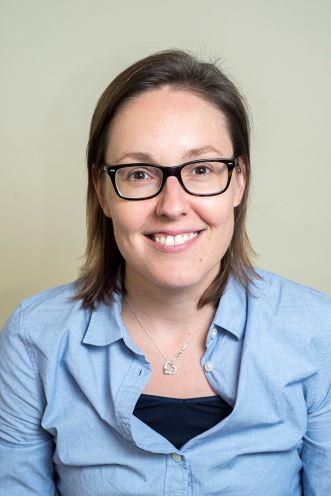
A co-founder of Neochromosome, Inc., a biotechnology company enabling biological engineering at genome-scale. Prior to Neo, Leslie was a post-doc at New York University Langone Health and worked extensively on chromosome and genome engineering in both yeast and mammalian systems and helped lead the international Synthetic Yeast Genome Project, Sc2.0, aiming to build a designer yeast genome from scratch. Leslie completed her PhD in systems biology at the University of Ottawa in Canada.
Congratulations to the Rosalind Franklin Medal 2022 Runner-Up: Dr. Betül Kaçar:
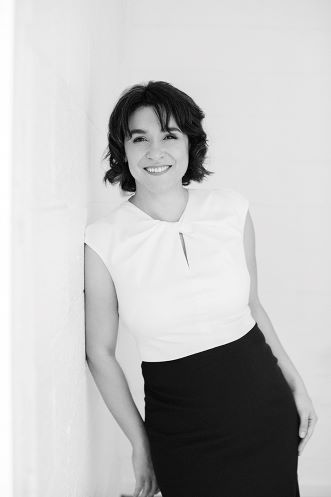
An assistant professor at the University of Wisconsin-Madison in the Department of Bacteriology. She received her Ph.D. in Biomolecular Chemistry from Emory University, and completed her postdoctoral studies at NASA Astrobiology Institute and Harvard University on Origins of Life and Evolutionary Biology. Her research group investigates the coevolution of cellular life and environment in lifeforms extinct and extant, using experimental systems. Dr. Kaçar received the Stanley Miller Early Career Award and the NASA Early Career Award. In 2022, she was selected to direct a new NASA-funded multimillion-dollar astrobiology research center focusing on life’s early evolution with emphasis on the natural selection elements over geologic time and to co-lead NASA’s new research coordination network on early cellular life. She has partnered with the UN Women Generation Equality Campaign to support education of girls and women globally. Asteroid 284919 Kaçar, discovered by astronomers using the NASA WISE space telescope, was named in her honor.
Please continue to share important news and opportunities with us so that we may share it with you, and others who are committed to supporting the careers of exceptional women in science.
Stay safe and sound,

Karla Shepard Rubinger
Executive Director
Rosalind Franklin Society
www.rosalindfranklinsociety.org

Biden taps prominent Harvard cancer surgeon to head National Cancer Institute.
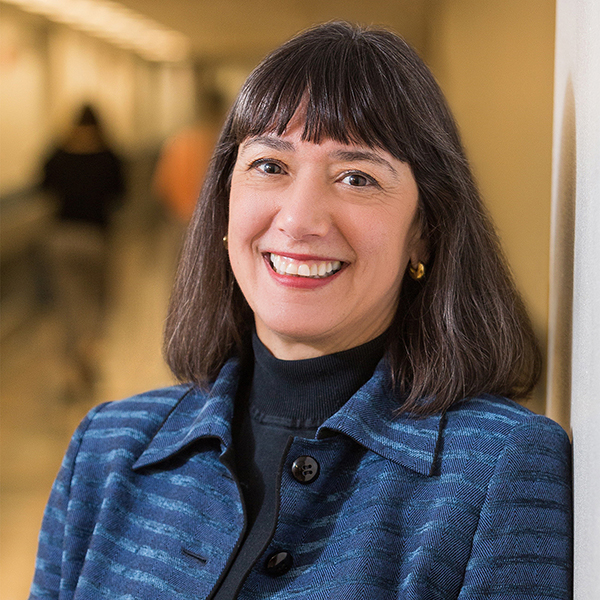
President Joe Biden has selected cancer surgeon Monica Bertagnolli as the next director of the National Cancer Institute (NCI). One of Bertagnolli’s first tasks will be to shape NCI’s role in Biden’s reignited Cancer Moonshot, which aims to slash the U.S. cancer death rate in half within 25 years. Bertagnolli will also head NCI efforts already underway to boost grant funding rates, diversify the cancer research workplace, and reduce higher death rates for Black people with cancer. Read more. (Image: ASCO; Glenn Davenport, Science)
Meet the Ukrainian number theorist who won math’s highest honor.
On July 5, Maryna Viazovska accepted her Fields Medal at the International Congress of Mathematicians in Helsinki, Finland. At the ceremony, the IMU cited Viazovska’s many mathematical accomplishments, in particular her proof that an arrangement called the E8 lattice is the densest packing of spheres in eight dimensions. She is just the second woman to receive this honor in the medal’s 86-year history. Read more.
Joyce C. Lashof, doctor who shattered glass ceilings, dies at 96.
Dr. Joyce C. Lashof, who fought for health equity and broke barriers as the first woman to head a state public health department, died on June 4 at an assisted living community in Berkeley. “From the start, her work in medicine and public health was deeply animated by a profound commitment to issues of social justice in our society,” said Nancy Krieger, a professor of social epidemiology at Harvard. “That included issues around racism, that included issues around social class, that included issues around gender.” Read more.
The explosive ambitions of Kate the Chemist.
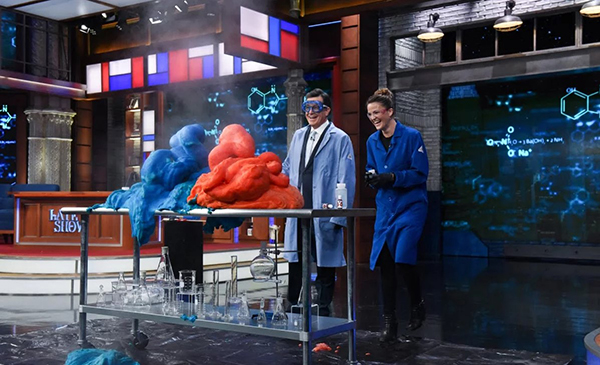
Kate Biberdorf, a professor at the University of Texas at Austin, has appeared on NBC’s “Today,” “The Late Show With Stephen Colbert” and other programs with color-changing chemicals, magnetic slime and bright, loud bangs. Dr. Biberdorf said she owed her passion for chemistry to her high school chemistry teacher. “My dream, truthfully, is to be her for the next generation of kids,” she said. Read more. Image by Kate the Chemist.
Meet the woman who makes the James Webb space telescope work.
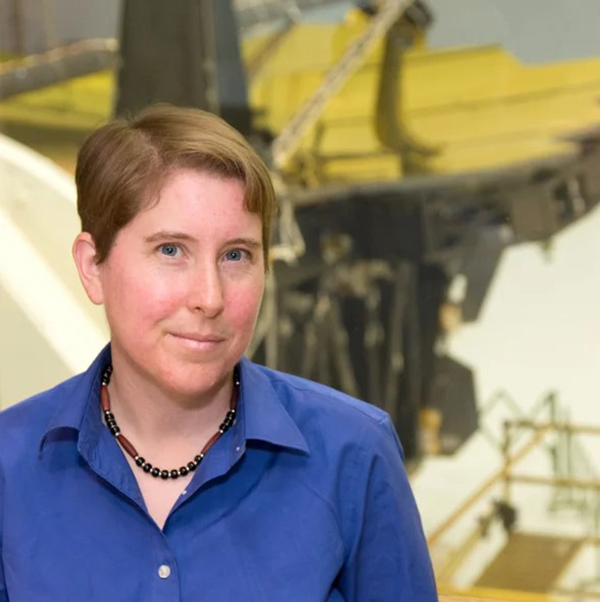
“Give me a telescope, and I can come up with something good to do with it,” says Jane Rigby, an astrophysicist at NASA’s Goddard Space Flight Center who serves as the agency’s operations project scientist for the $10-billion James Webb Space Telescope, the largest and most powerful off-world observatory yet built by humankind. Image credit: NASA/David P. Friedlander. Read more.
Early-career research fellowship opportunity! Application deadline: August 24, 2022.
The Education Research track goal focuses on contributing to the advancement of K-12 educational equity related to science and environmental literacy in the Gulf of Mexico region or Alaska by considering the recent impact of disasters on educational opportunities for students in vulnerable communities. Read more.
Nature science icon Jane Goodall gets special Barbie made from recycled plastics.
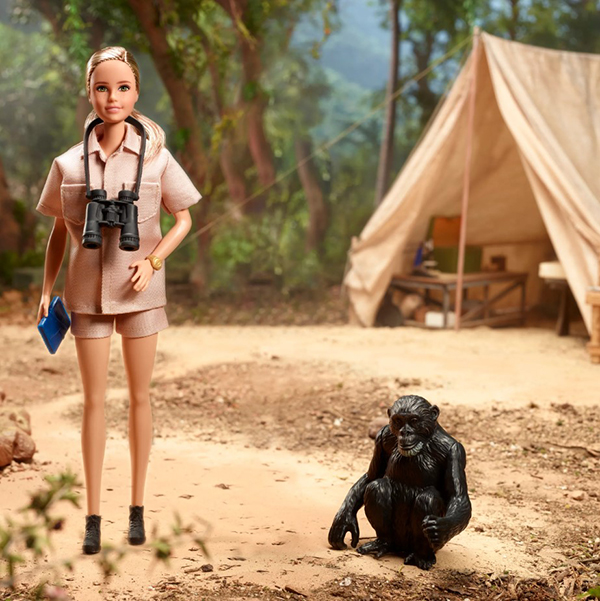
“Kids need more role models like Dr. Jane Goodall," said Lisa McKnight, Mattel's executive vice president and global head of Barbie and dolls, said in a statement. "We hope that this collection and homage to a groundbreaking pioneer for women in science and conservation inspires kids to learn more about green careers, how they can protect the planet, and act out sustainable stories through doll play.” Read more. Image: Mattel.
Arnold P. Gold Foundation is looking for a new CEO.
The Arnold P. Gold Foundation (Gold Foundation), the nation’s premier advocate for humanism in healthcare, invites applications and nominations for the role of President and Chief Executive Officer (President). Read more.
The engineer who teaches our bodies to heal themselves.
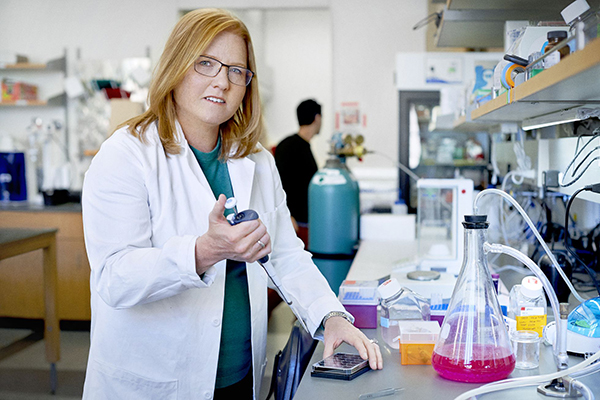
“Biomaterials can play a key role in helping our bodies heal themselves,” said Kristi Anseth, who received the 2020 L’Oréal-UNESCO For Women in Science international award in late June. In an interview with EL PAÍS, the researcher who specializes in regenerative medicine and tissue engineering, and also designs synthetic materials that imitate our tissues, said, “We are using materials designed for textile products like mattresses or clothing, and making them interact with the human body.” Read more. Image: EL PAÍS.
2022-2023 Gold Humanism Scholars at the Harvard Macy Institute.
The Arnold P. Gold Foundation announced the 2022-2023 Gold Humanism Scholars at the Harvard Macy Institute Program for Educators:
- Erica J. Harris, MD, of Einstein Healthcare Network, whose project focuses on developing an “innovative trauma informed care curriculum for diverse learners in an urban emergency department”
- Jasmine R. Marcelin, MD, FACP, FIDSA, of the University of Nebraska Medical Center (UNMC), whose project “JEDI with Jasmine” focuses on “building trust through developing inclusive spaces to discuss principles of justice, equity, diversity, and inclusion in healthcare for internal medicine residents and faculty”
- David Ansari, PhD, of the University of Illinois College of Medicine at Chicago, whose project will focus on “developing a library of clinical scenarios for the First Death program using technology- and human-based simulation.” Read more.
The astrophysicist who sculpts stars before they are born.
“As both an artist and an astronomer, you have to be a careful observer of what’s happening in nature and really try to understand what things look like. I think that my affinity for images and my desire to visualize things definitely feed into my scientific curiosity. After all, astronomy is really the science of light and images,” says Nia Imara, an astrophysicist at the University of California, Santa Cruz. Read more.
Four researchers with MIT ties earn Schmidt Science Fellowships.
Four researchers, 3 of whom are women, with MIT ties — Juncal Arbelaiz, Xiangkun (Elvis) Cao, Sandya Subramanian, and Hannah Zlotnick ’17 — have been honored with competitive Schmidt Science Fellowships. The four MIT-affiliated researchers are among 29 Schmidt Science Fellows from around the world who will receive postdoctoral support for either one or two years with an annual stipend of $100,000, along with individualized mentoring and participation in the program’s Global Meeting Series. Read more.
Marianna Limas, Social Media Manager
Nilda Rivera, Partnership and Events Manager
|
|
|
Dear Colleagues,
I am pleased to include another issue of RFS Briefings with some timely and encouraging updates on women in science.
Please continue to share important news and opportunities with us so that we may share it with you, and others who are committed to supporting the careers of exceptional women in science.
Stay safe and sound,

Karla Shepard Rubinger
Executive Director
Rosalind Franklin Society
www.rosalindfranklinsociety.org
FDA adds some fresh senior leadership with new chief scientist, chief medical officer.
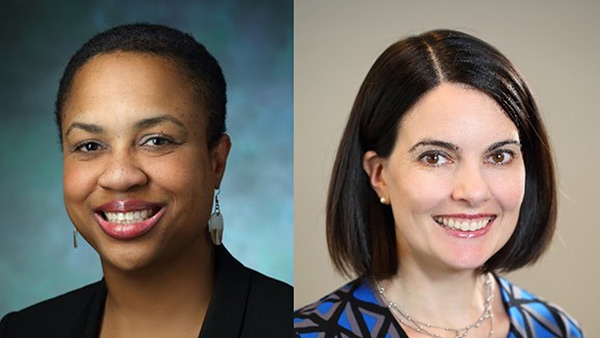
Johns Hopkins’ Namandjé Bumpus will be the FDA’s new chief scientist, replacing Denise Hinton, who moved on in October 2021 to advise and support the US Surgeon General, and Hilary Marston, a White House senior policy advisor on Covid-19, will take over as chief medical officer, which was a role previously held by Janet Woodcock. Image: Namandjé Bumpus (L) and Hilary Marston. Read more.
The Human Right to Our Bodies.
Roe v. Wade is overturned. “Now is the time to mobilize and defend, through science and innovation, the fundamental and unalienable human right of reproductive health.” Read Dr. Hana El-Samad's powerful editorial in GEN Biotechnology. Read more.
CRISPR debuted 10 years ago, in a paper hardly anyone noticed. Jennifer Doudna reflects on the DNA scissors’ first decade.
Recently, Jennifer Doudna had the opportunity to speak over Zoom with Victoria Gray — the first sickle cell patient in the U.S. to be treated with CRISPR — and to hear about her life before and after the therapy. “I’ll just never forget that moment. For a scientist to see the real-world impact of work they were involved in, there’s just nothing like it. To see that real-world impact within 10 years of that original publication? That’s just mind-blowing to me,” says Doudna. Read more.
Prisca Liberali awarded EMBO Gold Medal 2022.
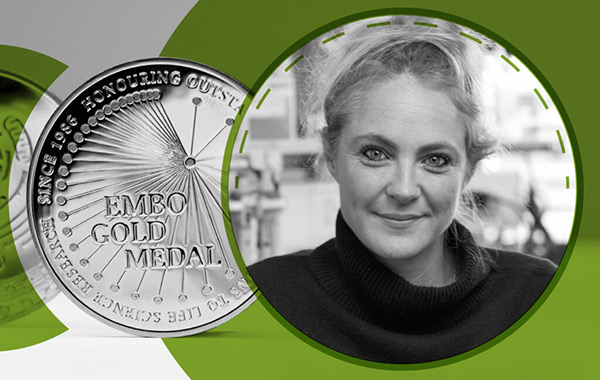
Molecular cell biologist Prisca Liberali, senior group leader at the Friedrich Miescher Institute for Biomedical Research in Basel (FMI), Switzerland, is recognized for her exceptional contributions to understanding the formation of intestinal organoids from stem cells and for developing new analytical tools. Read more.
Interview with Vaccinologist Sarah Gilbert: ‘We need to be better prepared for a new pandemic’
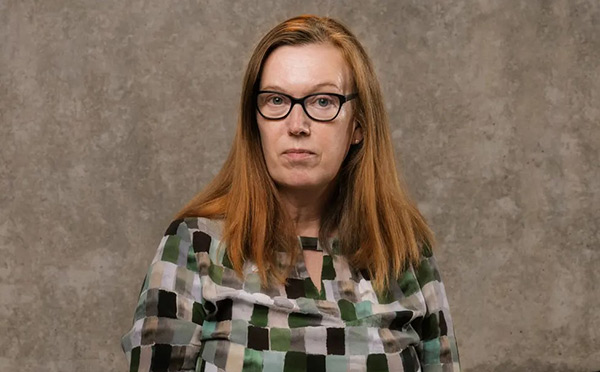
Dame Sarah Gilbert is a professor of vaccinology at Oxford’s Jenner Institute. “It’s difficult to take any time away from the job I do. I find it really hard to switch off. I need to get better at that. It was difficult for all of us – they did whatever they could to support me,” says Gilbert. Photograph: Manuel Vázquez/The Guardian. Read more.
UMass Amherst chemical engineer receives $1.4M NSF grant to create programmable living devices for drinking water contaminant removal.
Lauren Andrews, University of Massachusetts Amherst assistant professor and the Marvin and Eva Schlanger Faculty Fellow in the department of chemical engineering, has received a three-year, $1.4 million grant from the National Science Foundation for a collaborative project to engineer synthetic bacteria to neutralize toxic contaminants found in drinking water. Read more.
New portrait of five trailblazing women scientists from Rockefeller’s past is unveiled.
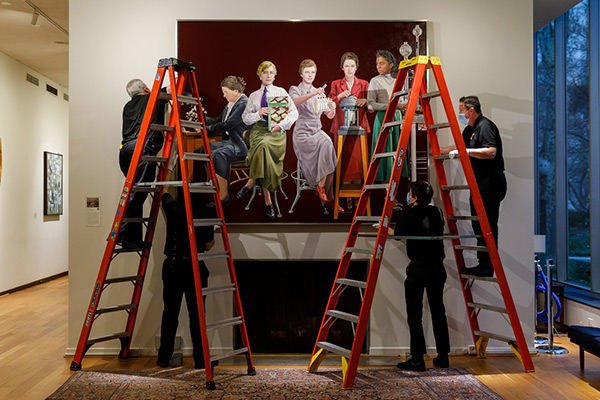
Until this spring, The Rockefeller University art collection contained 35 portraits—all depicting historical male scientists and benefactors. But on April 14, when a new portrait by artist Brenda Zlamany was unveiled over the fireplace in the Abby Aldrich Rockefeller Reception Hall, five preeminent women scientists joined the university’s portraiture collection. Read more.
National Academy of Medicine names 11 Scholars in Diagnostic Excellence for 2022.
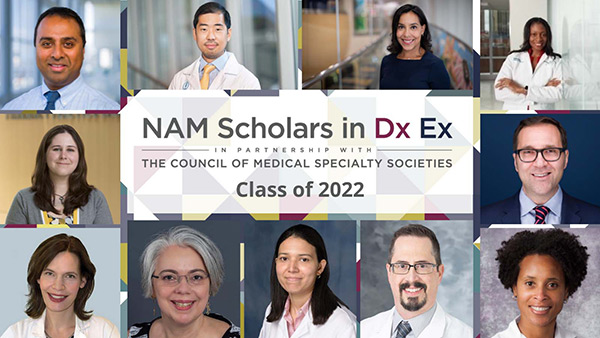
Funded by the Gordon and Betty Moore Foundation, this collaborative program in partnership with the Council of Medical Specialty Societies (CMSS) offers a one-year, part-time experience for exceptional individuals to advance their diagnostic skills, make significant contributions to improve clinical diagnosis at the national level, and accelerate their career development as national leaders in the field. Read more.
Carnegie Corporation of New York honors 34 distinguished immigrants whose contributions to our democracy inspire us all.
Congratulations to the four women scientists! This year, Carnegie Corporation of New York is highlighting the work of immigrants including two Nobel Prize laureates, a COVID-19 vaccine developer, a university president, an expert on nuclear threat reduction, and more. Read more.
Ukrainian mathematician becomes second woman to win prestigious fields medal.
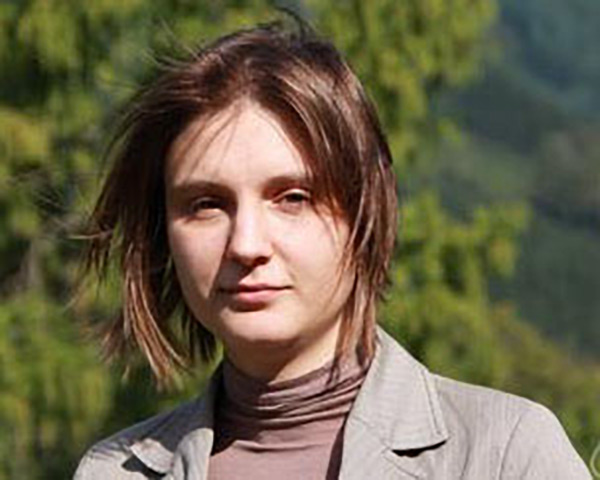
Ukrainian number theorist Maryna Viazovska is among the four winners of the 2022 Fields Medals, one of the highest honors in mathematics that is conventionally awarded to people aged under 40. She is best known for her solution of the sphere packing problem — finding the arrangement of spheres that can take up the largest portion of a volume — in eight dimensions. Read more. (Image by Wikipedia)
Imperial researcher honored at Asian Women of Achievement Awards.
Dr Pavani Cherukupally, from Imperial’s Department of Chemical Engineering, received an Asian Women of Achievement award in the science category earlier this month for her work in surface science. Her recent research has included developing a scalable and low-cost material that can remove pathogenic bacteria from wastewater, presenting opportunities to make water safe and prevent the spread of water-borne infectious diseases. Read more.
Stoddard named Schmidt Science Polymath.
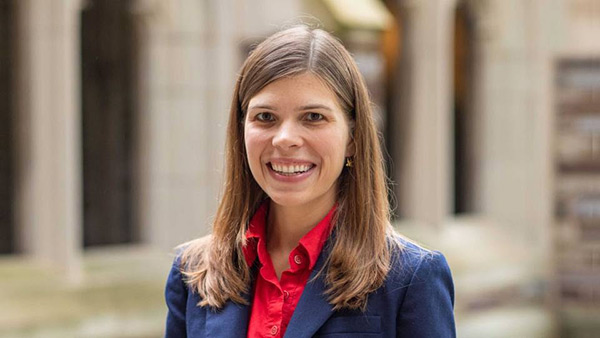
Schmidt Futures announced that Mary Caswell “Cassie” Stoddard is one of 10 Schmidt Science Polymaths for 2022. Stoddard, an associate professor of ecology and evolutionary biology, studies the extraordinary diversity of signals and traits in nature. Her lab investigates the evolution of animal coloration and morphology, with a focus on birds. Photo by Nick Donnoli, Office of Communications, Princeton University. Read more.
Marianna Limas, Social Media Manager
Nilda Rivera, Partnership and Events Manager
|
|
Dear Colleagues,
I am pleased to include another issue of RFS Briefings with some timely and encouraging updates on women in science.
Please continue to share important news and opportunities with us so that we may share it with you, and others who are committed to supporting the careers of exceptional women in science.
Stay safe and sound,

Karla Shepard Rubinger
Executive Director
Rosalind Franklin Society
www.rosalindfranklinsociety.org

After Roe v. Wade: US researchers warn of what’s to come.
The constitutional right to an abortion has been struck down in the United States. The US Supreme Court announced on 24 June that it would overturn the 1973 landmark decision Roe v. Wade, which had protected abortion access up until the point that a fetus could live outside the womb. Public-health researchers have renewed their warnings of the harms that this decision will bring to the country. Read more.
At the forefront of building with biology.
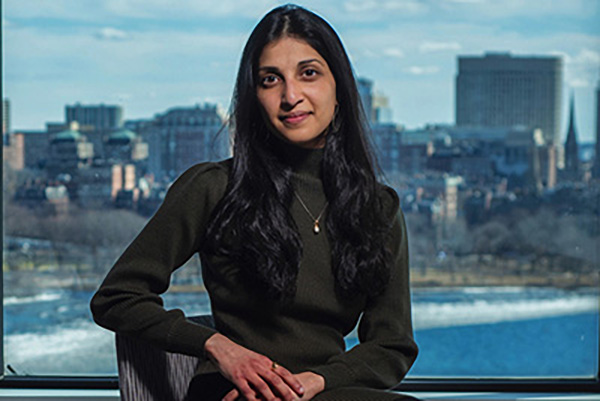 Caption: Ritu Raman. Photo: David Sella Caption: Ritu Raman. Photo: David Sella
Ritu Raman leads the Raman Lab, where she creates adaptive biological materials for applications in medicine and machines. “As a mechanical engineer, I’ve pushed back against the idea that people in my field only build cars and rockets from metals, polymers, and ceramics. I’m interested in building with biology, with living cells,” she says. Read more. Check out her presentation at the Rosalind Franklin Society 2019 year end meeting.
Women less likely than men to get authorship on scientific publications, analysis finds.
Women are 13% less likely to be credited with authorship than men on a paper and 58% less likely to receive credit on a patent. The discrepancy exists despite survey results showing women self-report contributing to a broader swath of types of scientific work that would merit authorship than men. Read more.
Biden names former DARPA leader Arati Prabhakar as science adviser.

US President Joe Biden has nominated Arati Prabhakar, an applied physicist with extensive experience in both government and the private sector, to be head of the White House Office of Science and Technology Policy (OSTP), and named her as his next science adviser. Read more. Image: Defense.gov
Applications are open for the Michelson Philanthropies and Science Prize for Immunology.
The Michelson Philanthropies & Science Prize for Immunology focuses on transformative research in human immunology, with trans-disease applications to accelerate vaccine and immunotherapeutic discovery. This international prize supports investigators 35 and younger, who apply their expertise to research that has a lasting impact on vaccine development and immunotherapy. It is open to researchers from a wide range of disciplines including computer science, artificial intelligence/machine learning, protein engineering, nanotechnology, genomics, parasitology and tropical medicine, neurodegenerative diseases, and gene editing. Read more.
An immunologist fights Covid with tweets and a nasal spray.
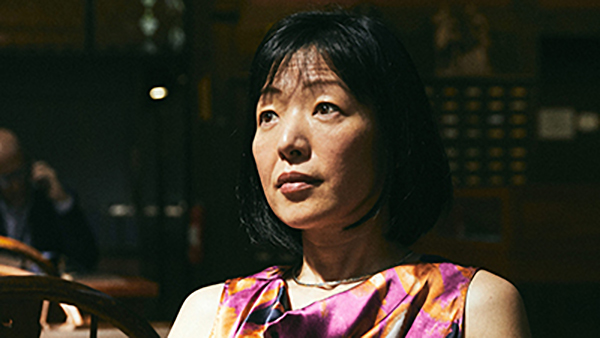
Akiko Iwasaki, an immunology researcher at the Yale School of Medicine, contributes to the fight against Covid-19 with both her vaccine work and her explanations of pandemic science for the public on social media. She thinks that nasal spray vaccines could be the next needed breakthrough in our fight against the coronavirus. Read more. Check out her presentation at the Rosalind Franklin Society 2020 year end meeting. Image: Brandon Schulman for Quanta Magazine
TWU biology's Dr. Pislariu earns $1 million CAREER grant.
Texas Woman’s University received a $1 million grant from the National Science Foundation for research on methods to rehabilitate farmland by planting crops that not only grow in depleted soil but also contribute to the regeneration of that exhausted earth. The research is under the direction of Catalina Pislariu, an assistant professor of biology at the university. Read more.
Pew funds 22 scientists investigating critical biomedical questions.
The 2022 class of scholars—all early-career, junior faculty—joins a rich network of the more than 1,000 scientists who have received awards from Pew since 1985. Current scholars have opportunities to meet annually to build connections and exchange ideas with fellow Pew-funded scientists. 11 this year are women in science! Read more.
Why it’s important to ask: ‘What does a scientist look like?’
Although stereotypes around scientists are shifting from the older man in a white coat, the rate of change is slow. Changing these stereotypes may be a key part of dealing with issues around gender equality in STEMM. Read more.
First public statue of female scientist in Italy celebrates astronomer.
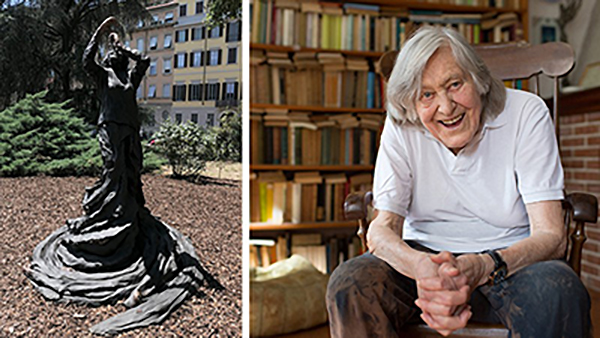
Astronomer Margherita Hack has become the first female scientist honored with a public statue in Italy. Hack, who was born in 1922 and died in 2013, was a high-profile figure for decades in the country, where she was a prominent science communicator and is credited with inspiring generations of young women to pursue a career in science. The statue shows Hack emerging from a vortex, representing the spiral shape of a galaxy. Read more. Credit: Left, Nick Zonna/ipa-agency/Shutterstock; right, Massimo Sestini/Mondadori via Getty (Nature).
‘Moms in Proteomics’ aims to bring together a community for supporting mothers in STEM.
Jennifer Geddes-McAlister, Assistant Professor of the Department of Molecular and Cellular Biology at the University of Guelph, was recently invited to publish an article about Moms in Proteomics. She talked about the importance of sharing stories of success and challenges, and building a community of mothers in STEM to support each other and the next generation. Read more.
Nominations for 2023 Advocacy Awards - Research!America.
Nominations are open for the Research!America’s 2023 Advocacy Awards! The awards below recognize individuals and organizations whose accomplishments in advocacy for scientific, medical, public health, or other health-related research have saved lives and improved the health of our nation. Click below to submit your nomination today! Please submit your nominations by Thursday, June 30, 2022. Read more.
Marianna Limas, Social Media Manager
Nilda Rivera, Partnership and Events Manager
|
|
Dear Colleagues,
I am pleased to include another issue of RFS Briefings with some timely and encouraging updates on women in science.
Please continue to share important news and opportunities with us so that we may share it with you, and others who are committed to supporting the careers of exceptional women in science.
Stay safe and sound,

Karla Shepard Rubinger
Executive Director
Rosalind Franklin Society
www.rosalindfranklinsociety.org

She Persisted in Science: An Exclusive Interview with Chelsea Clinton.
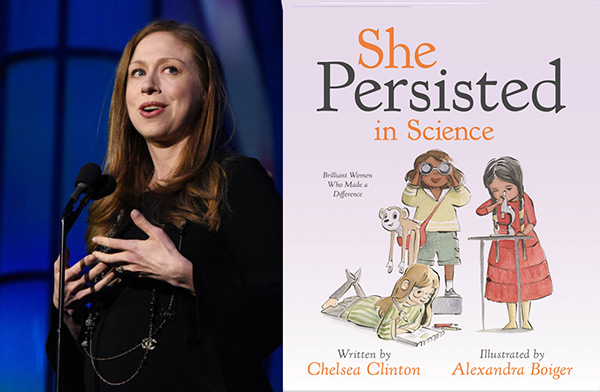
The Rosalind Franklin Society (RFS) and Genetic Engineering and Biotechnology News (GEN) had the pleasure of co-hosting an interview with Chelsea Clinton—a champion of women who persist and pursue their passions. Her mission currently takes the form of a new children’s book series. The most recent in the series, She Persisted in Science, features 13 women scientists. Read more.
Dr. Mona Fouad receives 2022 Vilcek-Gold Award for Humanism in Healthcare.
Dr. Mona Fouad received the 2022 Vilcek-Gold Award for Humanism in Healthcare award for her leadership in health disparities research, and for her career-long commitment to equity in healthcare. Fouad’s work has been foundational in the development of rigorous research and interventions to make healthcare more accessible and equitable to historically underserved populations in the United States. Read more.
Women more likely to win awards that are not named after men.
Some researchers have suggested mechanisms for the possible connection between prizewinners and award names. Unconscious bias could influence award-committee members to select winners who resemble the role model the prize is named after, says Johanna Stadmark, a geologist at Lund University. Read more.
Submit your nomination for the Awards at Biotech Week Boston.
Nominations are now open to honor the top individuals, companies, and organizations that make the life sciences ecosystem vibrant and innovative. Since 2018, the Awards at Biotech Week Boston have been bringing together the faces and names that make the Boston community the beating heart of the biotech world. Read more.
Eppendorf & Science Prize for Neurobiology.
The international Eppendorf & Science Prize for Neurobiology is awarded annually to one young scientist who is not older than 35 years for the most outstanding neurobiological research based on methods of molecular and cell biology conducted by him/her during the past three years. Read more.
Winners of 2022 Kavli Prize announced June 3, 2022.
The Norwegian Academy of Science and Letters has announced the 2022 Kavli Prize laureates in the fields of astrophysics, nanoscience, and neuroscience, and laureates in each field will share $1 million. Congratulations to Huda Y. Zoghbi, RFS board member, and the other 2022 Kavli Prize Laureates for their transformative contributions to science and society. Read more.
‘Tackling the Challenges of Our Time Requires All of Us to Be at the Table’
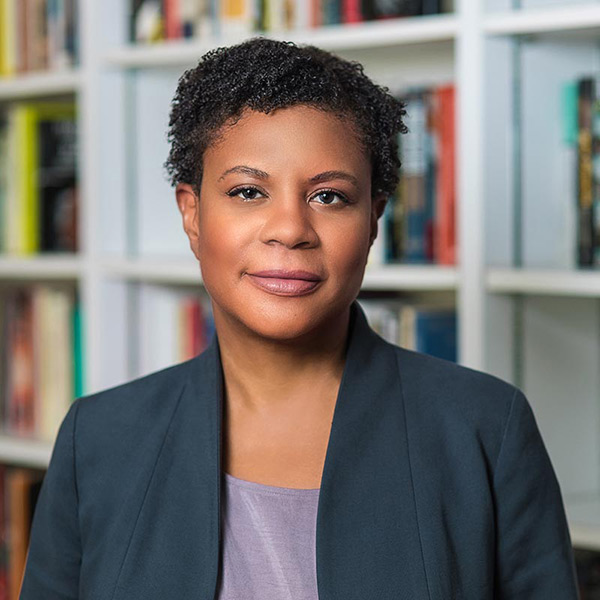
As the world faces challenges such as preparing for future pandemics and the worsening impacts of climate change — our present moment is defined by the urgent need to improve equity, according to Alondra Nelson, acting director of the White House Office of Science and Technology Policy. “Those grand challenges, those wicked problems from climate crisis to societal inequities, from health disparities to environmental injustice, and more, those answers are not necessarily one size fits all,” said Nelson, the keynote speaker at a recent National Academies event. Read more.
A $25,000 Award for Women in Science Addressing Air Quality and Climate Change.
The Story Exchange, an award-winning nonprofit media organization dedicated to elevating women’s voices, is seeking submissions for its 2nd annual Women In Science Incentive Prize. They will award $5,000 incentive prizes to 5 female scientists working to improve air quality and protect health. Deadline for submissions: July 31. “We know that women in science, particularly early-career women, can feel isolated as they work on novel solutions to pressing climate change issues,” said Sue Williams, executive director of The Story Exchange. “We hope this prize supports them and recognizes their efforts, which often go unseen and unsung.” Read more.
L'Oréal-UNESCO For Women in Science international awards 2022.
In this special Ceremony gathering the laureates from the past three editions, 15 exceptional researchers will receive the L’Oréal-UNESCO For Women in Science International Awards in recognition of their outstanding scientific achievements in recent years, along with 30 young female scientists, selected in 2020 and 2022, who will earn the title of International Rising Talents. Read more.
Nominations for the George Washington Carver Award & Rosalind Franklin Award are Now Open.
The two prestigious BIO Impact awards celebrate new pioneers in biotechnology and honor those who came before. Each year these awards for innovation and leadership are presented to individuals who have made a significant contribution to building the biobased economy. Read more.
The Unwritten Laws of Physics for Black Women.
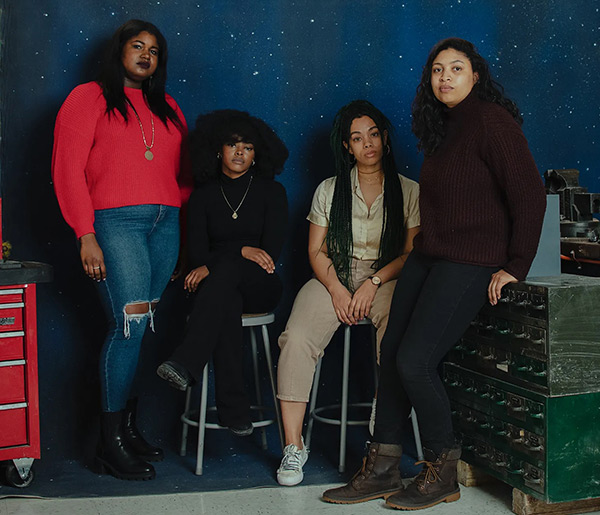
Black women in physics face a lot of exhausting challenges, no matter how talented and brilliant they are. “The problem is not with us. It’s systemic, and it can only begin to change once there are more of us—taking up space, sharing our views, being ourselves,” writes Katrina Miller. Read more. Photo by Akilah Townsend. Left to right: Andrea Bryant, LaNijah Flagg, Katrina Miller, and Ayanna Matthews connected as a group when Flagg arrived in Chicago.
Marianna Limas, Social Media Manager
Nilda Rivera, Partnership and Events Manager
|
|
Dear Colleagues,
I am pleased to include another issue of RFS Briefings with some timely and encouraging updates on women in science.
Please continue to share important news and opportunities with us so that we may share it with you, and others who are committed to supporting the careers of exceptional women in science.
Stay safe and sound,

Karla Shepard Rubinger
Executive Director
Rosalind Franklin Society
www.rosalindfranklinsociety.org

Chien-Shiung Wu’s work defied the laws of physics.
Chien-Shiung Wu flouted gender and racial barriers and eventually came to be known as the “first lady of physics.” Despite how frequently she experienced discrimination throughout her career—during which she won every award in the field except the Nobel—Wu didn’t stop researching until her retirement in 1981. Read more.
Why menopause matters in the academic workplace.
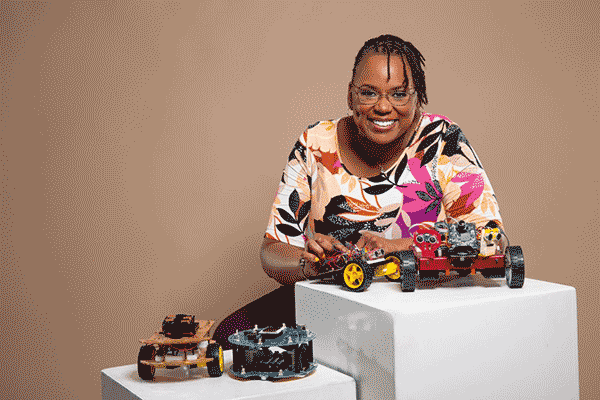
Half of the world’s population can expect to experience menopause. Yet, most workplaces don’t see menopause — and the mental and physical changes that accompany it — as something they have to support. And many women are reluctant to speak out for fear it might lead to them being labelled as problematic. Read more. Image: Menopause hit electrical and computer engineer Carlotta Berry “like a steam truck”, and now she counsels younger colleagues experiencing it.Credit: Haley Rose Photography.
New HHMI program pledges $1.5 billion for outstanding early career faculty committed to diversity, equity, and inclusion.
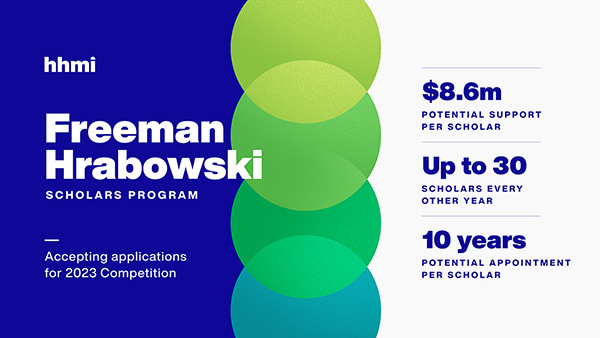
HHMI, part of our Council of Academic Institutions, has launched a $1.5B program designed to build a more diverse scientific workforce by supporting early-career basic biomedical researchers, including physician-scientists. Over the next 20 years, HHMI expects to hire and support up to 150 early career faculty as Freeman Hrabowski Scholars – appointing 30 Scholars every other year for the next decade. Read more.
The pandemic is our chance to fix the Black women in STEM gap.

Black women are now the most educated group in the United States, but they remain woefully underrepresented in science, technology, engineering and mathematics (STEM) fields. The COVID-19 pandemic is our chance to repair this gap. Read more. Image by (WOCinTech Chat / Flickr).
Biochemist Marie Maynard Daly uncovered what makes us tick.
Crack open any high school science textbook, and it’ll likely contain a few basic concepts of human biology. What you likely won’t find is a reference to the American biochemist Marie Maynard Daly, who contributed fundamental research to these ideas throughout her prolific career. The omission is neither a surprise nor an accident. Daly, a Black woman, was underappreciated for much of her professional life, which spanned from the 1940s to 1986. Read more.
Racial and economic barriers kept Carolyn Beatrice Parker from realizing her full potential.
All too often, even in 2022, Black students are interpreted through a deficit model: Academic institutions assume that we’re underprepared and that our families are unfamiliar with such work. Read Carolyn Beatrice Parker’s CV in the context of her family’s achievements, however, and it’s immediately apparent that she represents an example of what’s possible when intellectual success is expected and the resources to achieve it are provided. Read more.
Esther Lederberg changed our understanding of how bacteria breed.
On December 10, 1958, microbiologist Esther Lederberg stood next to her husband. Clad in a pale, floor-length gown, clutching a small purse in gloved hands, she gazed unsmiling into the camera. Joshua Lederberg had just won a Nobel Prize in Physiology or Medicine for his discoveries in bacterial genetics. Read more.
How academic institutions can help to close Wikipedia’s gender gap.
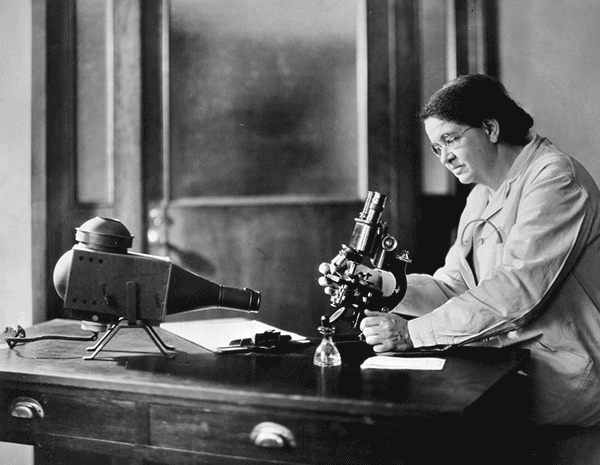
Since 2018, 500 Women Scientists, a grass-roots advocacy organization of which we are all members, has run more than 30 Wikipedia edit-a-thon sessions — workshops in which Wikipedia experts and novices come together for a guided crash course on the website and a few hours of focused editing. Read more. Image: Physician Florence Sabin was a pioneering woman in science.Credit: Granger Historical Picture Archive/Alamy.
Jocelyn Bell Burnell discovered pulsars, but someone else won the Nobel.
Jocelyn Bell Burnell, a doctoral student in astronomy at Cambridge University, was plowing through the massive set of cosmic data from a radio telescope when she spotted something peculiar: a series of spikes in relative brightness. She’d discovered the first known pulsar—a rotating neutron star that emits beams of electromagnetic radiation out of its magnetic poles, akin to a lighthouse spinning its beam. Read more. She spoke at our 2020 RFS year-end meeting. Check her out here.
Marilyn Fogel, Biogeochemist and “Isotope Queen,” Dies at 69.
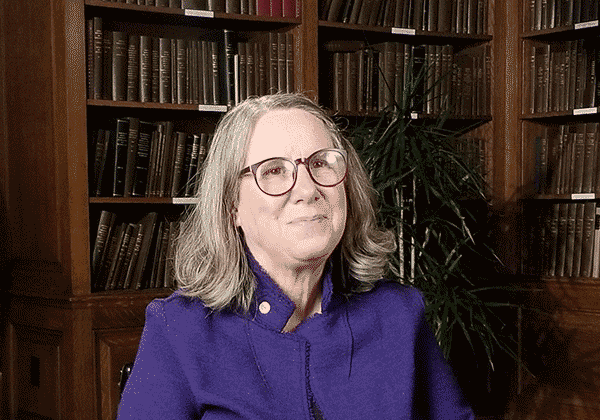 Photo by Natasha Metzler / Carnegie Institution for Science Photo by Natasha Metzler / Carnegie Institution for Science
“Driven by her deep curiosity about nature, she fearlessly pursued new knowledge by developing novel methods to probe isotopic and geochemical phenomena across a broad range of disciplines,” Eric D. Isaacs, president of the Carnegie Institution for Science, says in an announcement about Fogel’s death. Read more.
Science in Africa: ‘The world needs science and science needs women’
Doreen Anene and Stanley Anigbogu launched separate initiatives to promote science careers to young girls and women in Africa. Anene, a final-year animal-science PhD researcher at the University of Nottingham, UK, says her mother struggled to get a teaching job in Nigeria because she did not have a science background. Her experience inspired her to set up The STEM Belle, a non-profit organization in Nigeria. Anigbogu, a storyteller and technologist, founded STEM4HER after meeting a young girl at a science fair. She told him that her mother thought that careers in STEM (science, technology, engineering and mathematics) were for boys, not for her. Read more.
In Her Own Words: Jen Colvin works to diversify STEM pipeline.
The impact of the pandemic on education as well as the disproportionate setbacks to underprivileged students have been well-documented. But even before Covid, Jen Colvin was devoted to bringing equity to education, especially in the areas of science, technology, engineering and mathematics (STEM). Read more.
Gladys West’s mathematical prowess helped make GPS possible.
A retired naval mathematician, West spearheaded a mathematical model of the Earth’s size and shape (a.k.a., a geoid), which is an essential layer underpinning today’s GPS networks. Since their launch in 1978, satellite navigation systems have touched nearly every aspect of both private and public life on Earth—from emergency response and power grid systems to turn-by-turn navigation and stock exchange timing. West’s contributions, however, were unknown to the public for nearly 40 years. Read more.
Marianna Limas, Social Media Manager
Nilda Rivera, Partnership and Events Manager |
|
|